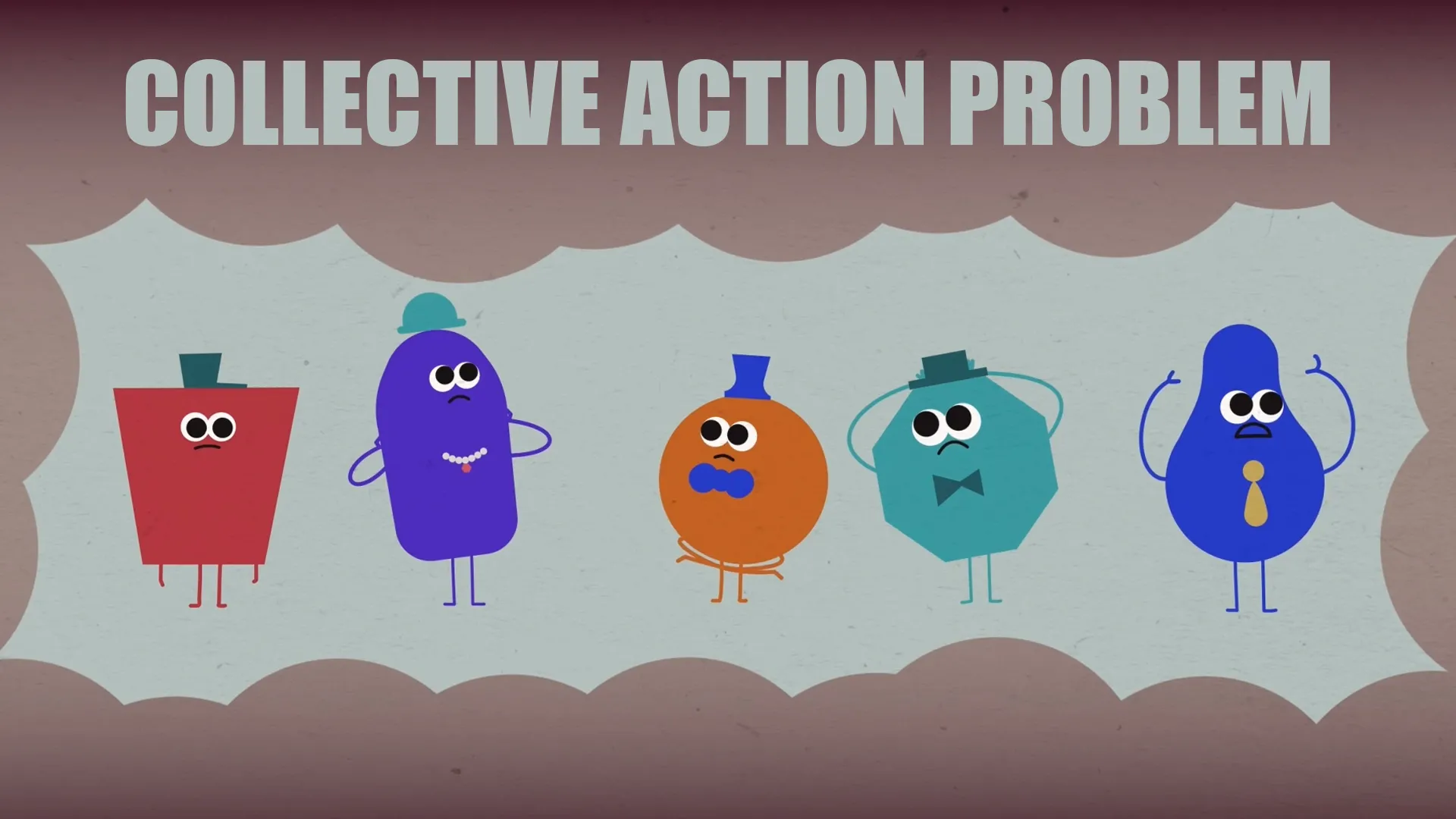How Climate Change is a Collective Action Problem
The world can work together in the fight against climate change, but there are challenges to international cooperation.
Climate change is a harmful global problem, and addressing it would benefit every country. But taking collective global action is challenging.
While climate change affects us all, its causes and impacts aren’t evenly spread. In some cases, the countries that emit the least greenhouse gases get harmed by climate change the most.
Also, some countries might be encouraged to free ride and continue to emit greenhouse gases, while they benefit from other countries' emissions reductions.
Nevertheless, there are ways for the world to overcome these challenges and work together to stop climate change.
Transcript: How Climate Change is a Collective Action Problem
Every country would benefit from stopping climate change. But that's difficult because it's a collective action problem. Regardless of where they're emitted, greenhouse gases from one part of the world can contribute to warming the whole world. So one country can't stop climate change by just reducing its own emissions, since other countries might keep emitting. Instead, countries would need to work collectively to all reduce emissions together.
But there are some reasons coordinating their efforts can be difficult. For example, countries can have different expectations of the costs and benefits from addressing climate change. The costs include emissions cutting actions that might reduce economic growth in certain sectors or regions. And the benefits involve avoiding the damage from increased natural disasters and preventing the large, widespread economic harms that come from a warming world.
If some countries see their costs as higher than others and see the benefits for themselves lower than others, they're less likely to reduce their emissions. But increasing knowledge about the effects and solutions of climate change can change these countries’ cost benefit analyses, enabling them to make better decisions on climate change. Though even if all countries agree to the costs and benefits of mitigation, they still might be concerned about free riders.
The worry is that if countries reduce their emissions, one country might try to free ride, continuing to emit greenhouse gases while still benefiting from the other countries reducing their emissions. The other countries would be concerned that they're bearing the costs of mitigation, but wouldn't be gaining the expected benefits. So then they're less inclined to reduce their own emissions.
But there are ways to address the free rider concern. Establishing regular interactions between countries on climate issues can allow countries to build trust with each other, creating transparency about commitments and actions taken can discourage free riders that don't want to tarnish their reputation. There could even be penalties established for free riders who shirk their commitments and act irresponsibly, though those would be difficult to establish and costly to implement.
But even if everyone is willing to pitch in, it can be difficult for countries to agree on how much specifically, each country should decrease their emissions. Different countries have different resources and capabilities. It might be easy for some countries to reduce their emissions. While it could be very difficult or economically painful for others. And different countries have different degrees of responsibility for climate change.
If they emitted far more greenhouse gases in the past, other countries may expect them to bear a greater share of the costs of addressing climate change now. These determinations can be controversial, making it harder for the world to take collective action. But it'll take many countries working together in order to stop climate change.



